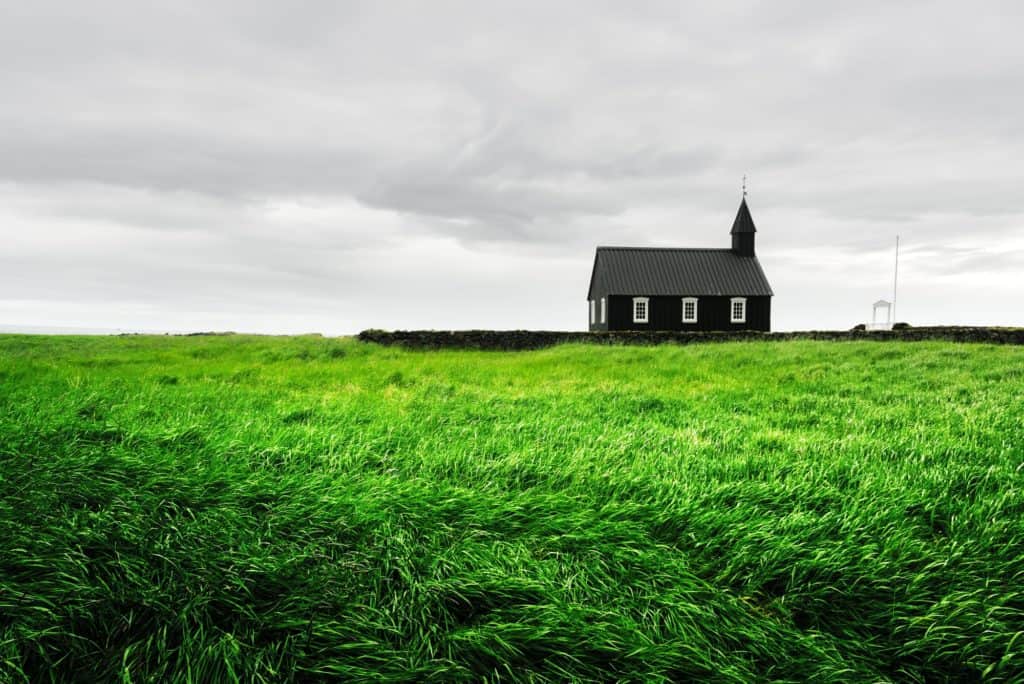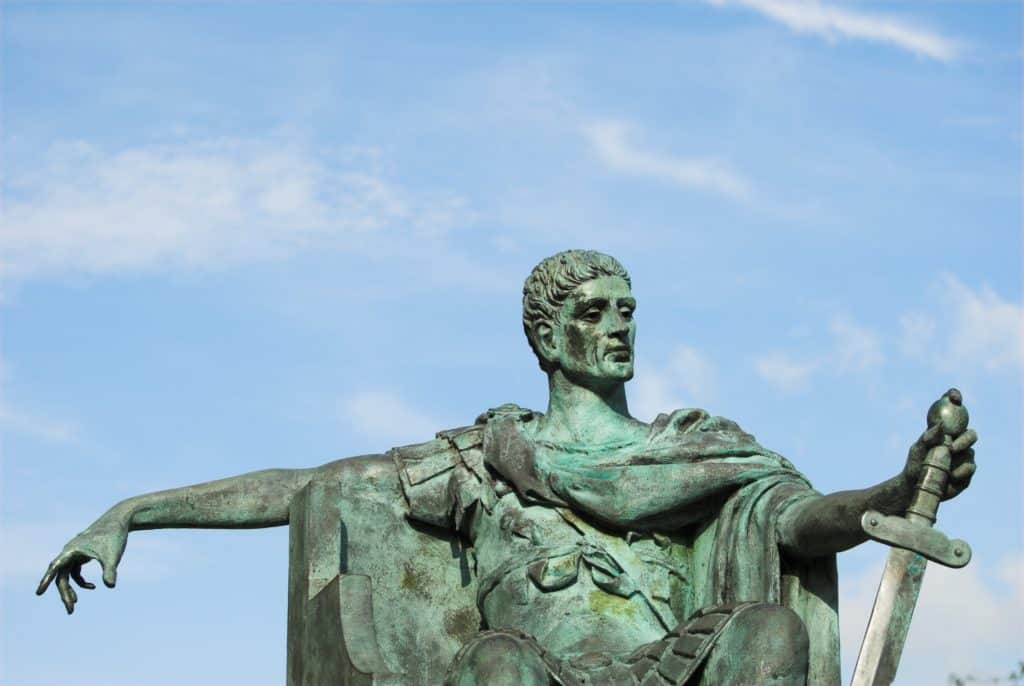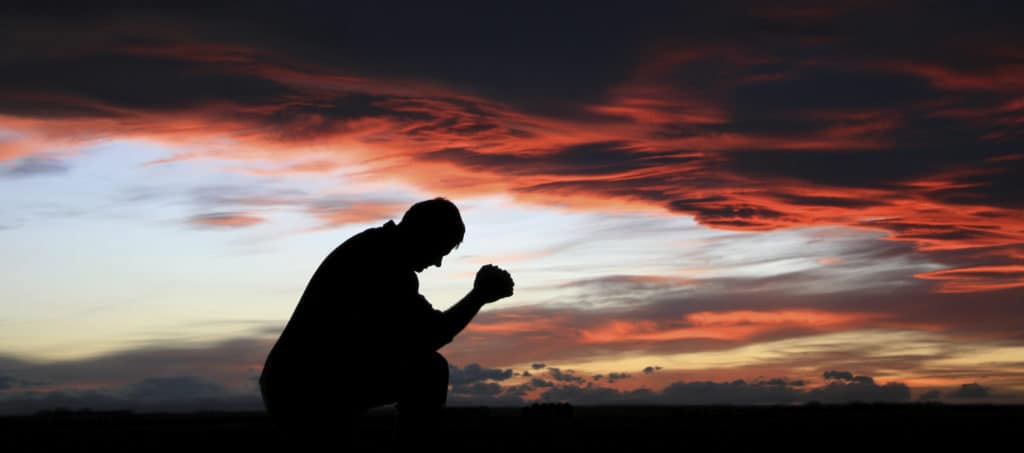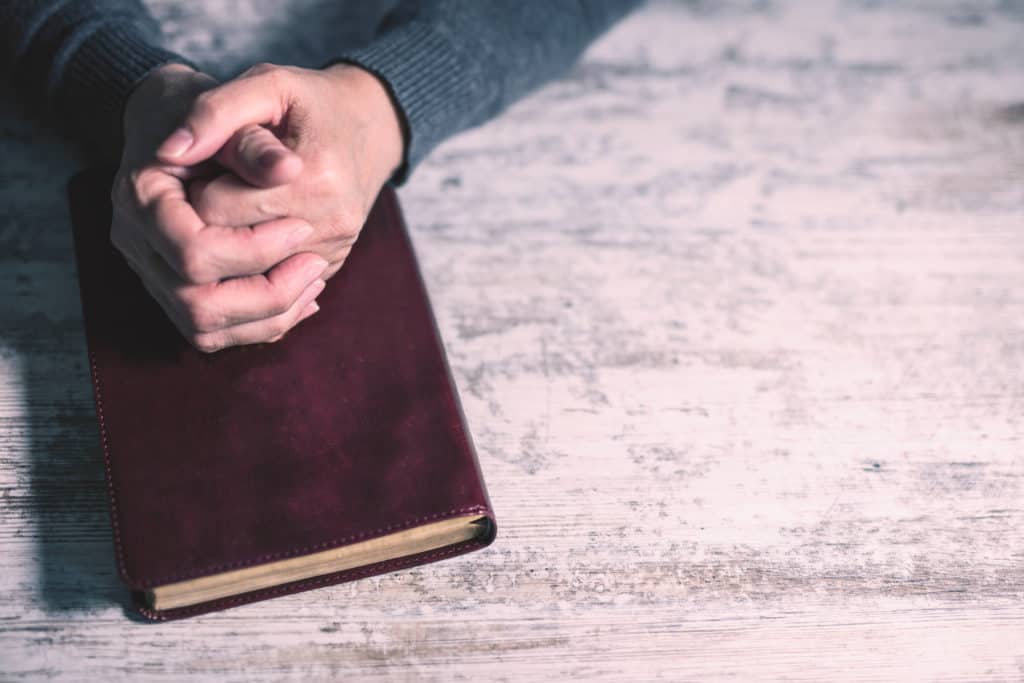
The Sabbath is a consistent theme throughout the Bible. But after Bible times, the seventh-day Sabbath was challenged and even changed to Sunday. But there were always a faithful few Christian churches who kept the original Sabbath throughout history, and continue to keep it today.
In this post, you’ll follow the dynamics in Sabbath observance from 70 A.D. through present-day, and also learn about the significance of the Sabbath during the End Times and in heaven.
Here are 7 things you’ll learn about:
- The Sabbath in the Early Christian Church
- How the Sabbath was changed from Saturday to Sunday
- The Sabbath during the Dark Ages
- The Sabbath during the Reformation
- The Sabbath in the United States
- Significance of Sabbath observance in the End Times
- How we can know which day is the Sabbath
Let’s begin from the 1st century A.D.

Sabbath observance until the end of the 1st Century A.D.
From the Bible, we get a few pointers that show how the Sabbath was habitually celebrated by faithful Christians until the end of the first century.
Here are two examples:
During the destruction of Jerusalem in 70 A.D.
In Matthew 24:15-20, Jesus predicted that Jerusalem was going to be destroyed.
And after giving details of what would happen, He gave His followers instructions, noting certain signs to watch for and how to escape the attack.
Then He told them to “Pray that [their] escape may not be in winter or on a Sabbath” (Matthew 24:20, CSB, emphasis added).
By saying this, He knew that His followers will be observing the Sabbath, even then.
This was the last record of Jesus mentioning the Sabbath while on earth. So He must have expected them to keep it as they’d always been taught to, and the way He kept it Himself (Luke 4:16).
During John’s exile in Patmos in 96 A.D.
Twenty-six years after the destruction of Jerusalem, John, a disciple of Jesus, wrote the book of Revelation.
And right in the first chapter, he states where it happened and when—even to the day.
He writes:
I was in the Spirit on the Lord’s Day, and I heard behind me a loud voice, as of a trumpet,saying, ‘I am the Alpha and the Omega, the First and the Last,’ and, ‘What you see, write in a book and send it to the seven churches.‘
Revelation 1:10-11a (NKJV, emphasis added)
He says that he received the command to write the book “on the Lord’s day.”
But what day was this?
The only day that the Bible repeatedly calls “the Lord’s,” or which God calls “His day” is the seventh-day Sabbath (Exodus 20:8, Isaiah 58:13, Mark 2:28).
This means that whether John was referring to Jesus or God the Father, John must have been referring to the Sabbath. Especially considering the fact that he was one of Jesus’ 12 disciples and a firm believer in His teachings.
So right up to the close of the first century, we have biblical references to the seventh-day Sabbath.
John was the last surviving disciple among Jesus’ 12 disciples. This means that the Sabbath was kept all throughout the apostolic age.
The apostles had diligently watched over the integrity of the Church in life and doctrine. But in their absence, this integrity began to fade.((John N. Andrews, History of the Sabbath and the First Day, pp. 194-196 ))
And Sabbath observance was one of the doctrines to be affected.

The teachings and traditions of the “Church Fathers”
In the early second century, a new generation of intelligent and influential church leaders emerged. These are commonly referred to as the Church Fathers.((Ibid., p. 197-202 ))
Justin Martyr was one of the leading names in the Second Century. And others like Polycarp, Ignatius, Dionysius, Theophilus, Irenaeus, Origen, Cyprian, and Tertullian followed in the years and centuries that followed.
These were known for their genius, eloquence, and devotion. Some of them even died as Christian martyrs. And as they wrote and taught, the believers began to look up to them for guidance, just as they did the apostles.
The only problem was that many of them came from religions other than Christianity. And they let their prior influences affect how they interpreted Scripture. Eventually, they integrated pagan practices into Christianity.
With time, these practices became rituals, and then traditions. In the end, many began to regard these traditions just as highly as they did the Scriptures as their standard of faith and practice.
Most of these things started innocently. But they ended up affecting key beliefs and practices of Christianity.
Creeping corruption starts in the time of the apostles
The Apostle Paul had seen signs of this corruption starting to enter the church even in his days.
Writing to the Thessalonians, he told them that the “mystery of lawlessness [was] already at work” in their time (2 Thessalonians 2:7, NKJV).
He had also warned that:
Time will come when people will not tolerate sound doctrine, but according to their own desires, will multiply teachers for themselves because they have an itch to hear what they want to hear. They will turn away from hearing the truth and will turn aside to myths.
2 Timothy 4:3-4 (CSB)
Paul saw that after the apostles were all dead and gone, many false teachers would come up and mislead people from the truth.
And with this kind of trust that the people had for Church Fathers, Paul’s prediction was coming true.
Instead of God’s Word continuing to be searched for every standard of truth, human beings started weaving their own ideas into the doctrines of Christianity, and following human wisdom instead of God’s.

How was the Sabbath changed from Saturday to Sunday?
The Christian church’s shift from observing the Sabbath on Saturday to observing it on Sunday was gradual.
Many factors contributed to this change. Some were religious and political factors, others were social and cultural.
The Sabbath until Emperor Hadrian’s Edict in A.D. 135
Between the destruction of Jerusalem and A.D. 135, the Christians from Jerusalem maintained Sabbath observance.
But in A.D. 135, Emperor Hadrian destroyed Jerusalem and expelled Jews and Jewish Christians. Then he prohibited practicing any “Jewish rites,” like circumcision and Sabbath-keeping, in his empire.
These Christians from Palestine spread throughout Asia to form the Eastern Church. And even with the prohibition, they still remained faithful to the true Sabbath.
Before this, Jerusalem had been the center of leadership for the Early Christian Church.
But with this dispersion, the center of leadership and influence shifted to the Church in Rome, the capital of the Roman Empire.((Kenneth A. Strand, The Sabbath in Scripture and History, pp. 135-136 ))

Rome and the origin of Sunday worship
From the time it was formed, the Roman church was mostly composed of non-Jews (Romans 11, 13, 14).
Generally, the Jews and their religious practices were looked down upon by the Romans.
And after the persecution Christians went through under Emperor Nero, the church in Rome didn’t want to be on the wrong side with the Romans.
So, with Hadrian’s edict in place, the Christians in Rome were more vulnerable to turning away from the Sabbath than ever.(( Ibid., p. 137 ))
Slowly, they preferred to set aside the principles of the Bible and unite with their pagan neighbors. And for the sake of peace, they even allowed them to join Christianity, though most of them never planned to fully convert.
Then some of them even rose to positions of leadership and became church fathers.
And with the Sabbath on the spot, because it was one of the prominent practices of the Jews, they began to turn the Christians away from it. They led them to substitute the Christians’ seventh-day Sabbath with what they had always practiced in paganism: Sunday observance.

Saturday a fast day, Sunday a feast day
This shift was accomplished by slowly turning the Sabbath into a gloomy fast day, and making Sunday a feast day.
Why Sunday?
Because Sunday was the official day of rest and feasting for most pagan religions. From the ancient Germans, Saxons, and Egyptians, to the Romans.((Andrews, p. 259-260. ))
It was a day dedicated to the worship of their chief god, the sun.
That’s why it was named “sun-day.”
And to show their patriotism and support for the Roman government, the leaders of the Church urged the believers to take part in those Sunday festivities.
A good example of these leaders was Justin Martyr. He was a secular philosopher before joining the church and becoming a church father. He once wrote a letter to the Emperor mentioning three times that the Christians did assemble on Sundays.((Andrews, p. 263. ))
When asked why they did it, these leaders had to figure out some agreeable reasons. They decided on three:((Strand, p. 142-144. ))
- It was the day Jesus resurrected (Mark 16:9).
- It was a memorial for the beginning of creation in Genesis 1.
- Strangely, they began calling it the “eighth day,” coming after the seventh, making it superior, and signaling a new beginning. Based on their interpretation of end-time events, it represented the dawn of a new world after the era of sin in this present world.
But the truth is that none of these reasons are supported by the Bible. They might sound nice, but there was no direction in Scripture to make such changes to the original seventh-day Sabbath honored throughout the Bible. They just had to come up with a few things to sound like solid reasons.
Apart from promoting Sunday as a day of feasting, they also made Sabbath a day of fasting.
And despite the opposition of Eastern Christianity and several Western churches, the Church of Rome also championed the fast in other Christian communities.((Ibid., p. 137. ))
By this, the Bible’s Sabbath was degraded while Sunday was exalted.
Then in A.D 200, another Church Father named Tertullian((Ibid., p. 222. )) outrightly referred to the eighth day (Sunday) as the “Lord’s day.”
This began the tradition of calling Sunday “the Lord’s day.” But as we saw in Revelation 1:10, “the Lord’s Day” was actually describing the original Sabbath.
From this we can see the danger of looking to human beings for spiritual guidance instead of looking to the Bible.
And if we are church leaders, we learn the importance of pointing others to Scripture and not adding our own ideas or agendas.
Like Paul, we need to tell them, “be imitators of me, as I am of Christ” (1 Corinthians 11:1, ESV, emphasis added).
Emperor Constantine’s decree in 321 A.D.
In the early fourth century, Emperor Constantine made Sunday a public holiday throughout the Roman Empire.((Ellen White, The Great Controversy, p. 53. ))
He called it “the venerable day of the sun.”
The decree required both Christians and pagans in all cities and towns to rest on Sunday.
Then Church Fathers, like Augustine of Hippo((Augustine, Nicene and Post-Nicene Fathers of the Christian Church, ed. Philip Schaff, pp. 593. )), taught that Christians don’t need to keep the Sabbath as the Bible described.
This teaching was reinforced by many councils in which the Sabbath kept getting pressed lower while Sunday was exalted.
An example is the Council of Laodicea((https://bibleask.org/when-did-the-sabbath-change-from-saturday-to-sunday/ )). One of the decisions from this council stated:
Christians shall not Judaize and be idle on Saturday (Sabbath), but shall work on that Day: but the Lord’s Day, they shall especially honor; and as being Christians, shall, if possible, do no work on that day. If however, they are found Judaizing, they shall be shut out from Christ.
The influence of these councils went as far as Asia and the entire Byzantine Empire.
Eventually, Sunday became known as a divine institution, while Saturday was regarded as a dreary ritual of Judaism.
Meanwhile, the Roman church had become powerful, with many half-converted dignitaries joining its ranks.
By the sixth century, it matured into a massive organization—The Roman Catholic Church—with the Bishop of Rome (the Pope) at its head.
Then Emperor Justinian made the Pope the head of all the churches in the Roman Empire.((Ekonomou, Andrew, Byzantine Rome and the Greek Popes, p. 49 ))
With this, the Roman church became the official church of the Roman Empire. And since the Roman Empire was the global superpower of the day, the church became regarded similarly, as a ruling entity for the entire Christian world—all the way to Egypt and China.
By the 12th century, Sunday became a holy institution of the church and the identifying mark of the Christians.
And that’s how it was throughout the Dark Ages until the dawn of the Reformation.

Sabbath in the Middle/Dark Ages from the 5th to 15th Century
Most of the Christian world honored Sunday as the Sabbath or “Lord’s Day” between the fourth and 17th centuries.
There were some who also kept Saturday along with Sunday, to avoid persecution.
But there were a handful of believers who remained faithful to the Bible and the true Sabbath.
Examples of these groups include:
- The Sabbatians and Surians in Syria – Late 4th century((Strand, p. 157. ))
- The Celtic church under the leadership of Patrick, Columba, and Dinooth
- The New Christians in India – 17th Century((Ibid., p. 161. ))
- The Aksumite Kingdom in Ethiopia – Throughout the Dark Ages((Ibid., p. 173-185. ))
- The Waldenses in Northern Italy / Vaudois of France – 12th century((James A. Wylie, History of Protestantism vol. 1, pp. 31-37. ))
- The Cathari and Petrobrusians of France – 11th century((Andrews, p. 398-432. ))
- The Passagini in Northern Italy – 12th and 13th Centuries
- The “Picards” in Bohemia – 12th Century
- The Lollards in England – late 14th to early 15th centuries
- In Norway and Denmark – 15th Century
- The Judaizing Movement in Novgorod, Russia – A result of the teachings of Lithuanian Jews between 1470 to 1475((Strand, p. 207-210. ))
The Sabbath in the Reformation from the 16th Century((Ibid., p. 215-226. ))
The protestant reformation began with Martin Luther((Wylie, p. 214-323. )) in Germany and quickly spread across Europe. As time progressed, many other Reformers joined the movement.
When it came to the question of Sabbath keeping, many of the major reformers like Luther and Zwingli((Ibid., p. 392-401. )) were Sunday keepers.
But there were some Reformation groups that made major changes toward keeping the Bible Sabbath.
We’ll look at 3 of them.
Sabbatarian Anabaptists in the 1500s
Anabaptists believed in baptizing adults, in contrast to the papal practice of baptizing babies.
They were mostly Sunday keepers, but some of them kept Saturday. This is the group that became called Sabbatarian Anabaptists.
They were spread all across Europe, with Oswald Glait and Andreas Fischer as their leaders. These two accepted Saturday as the Bible Sabbath in 1527 and 1528.
As his personal observation of Sabbath in the Bible, Fischer said:
The Scriptures speak so often about the Sabbath; if 1 would have as many texts and passages about Sunday as there are about Sabbath, I would keep Sunday instead of Sabbath.

Seventh Day Baptists in England in the 1600s
These were Baptists who believed in the Sabbath in the 17th century. A prominent figure in this group is Stephen Mumford of the Bell Lane Seventh Day Baptist church in London. He’s the one who formed the first Seventh Day Baptist congregation in America.((Strand, p. 240, 243. ))
The Puritans of England in the 16th and 17th Centuries((Ibid., p. 229-242. ))
The Puritans were a group that took Sabbath observance seriously in England in the late 1500s and into the 1600s.
They differed from the Anglicans, who were the established reformed church of England. They were different in their view of how the Sabbath should be observed.
For most of reformed England, Sunday was the day of worship and rest. But it was kept differently, more of a day for recreation.
The majority of Puritans also kept Sunday, but wanted it to be observed as a sacred day, more like what the Bible describes for Sabbath. They even wanted to have laws to guard its observance and to punish those who didn’t.
But there was a minority among Puritans that kept Saturday. While they advocated for its sacred observance, they also insisted that the seventh-day Sabbath of the Bible was never changed and should be kept on Saturday, not Sunday.
These views got the Puritans into a lot of trouble with the Anglican church and the government.
By 1632, the Puritans were forced out of the Anglican church.
They first went to the Netherlands, but soon encountered the same problems as in England.
So two groups crossed the Atlantic and settled in Plymouth, New England in America. The first arrived in 1620, and the second group in 1629.
These early settlers were mostly Sunday keepers, and they were determined to have Sunday observance as law. This led to the suppression of the seventh-day Sabbath advocates, who ended up being labeled as heretics.
Sabbath-keeping in the New World and America (1600s to date)((Ibid., p. 244-255. ))
The first seventh-day Sabbath-keepers in the New World were Jews. They arrived as early as 1502, escaping the Inquisition in Europe. They settled in Brazil and Mexico.
Then when the Portuguese conquered Brazil in 1654, they fled Brazil and settled in North America, as far north as New York. From here, they spread to other parts and established their Jewish practice, including keeping the original seventh-day Sabbath.
But Sabbath-keeping Christians also soon landed in America, beginning with Seventh-day Baptists.
The Seventh Day Baptists in America in 1664
In 1664, Stephen Mumford((Andrews, p. 493-494. )) arrived at Newport, Rhode Island from England. He believed that the seventh-day Sabbath to be the true Sabbath of the Ten Commandments and should not be substituted with Sunday.
When he couldn’t find any of his faith, he joined a congregation of Sunday-keeping Baptists. They had arrived earlier on the Mayflower with the Pilgrim Fathers.((Strand, p. 239-240. ))
After sharing his Sabbath beliefs with the Baptists, many accepted his teachings. This caused a major division in the Baptist congregation.
Finally, there was a split. And the first Seventh Day Baptist church in America was established in 1671.
The church grew, gaining members from conversions and Sabbath believers coming in from England.
By 1784, they had congregations in Connecticut, Pennsylvania, New Jersey, and New York, in addition to the one in Rhode Island.
From then on, they spread west with the tide of American migration toward the west coast.
But it was never easy for them, due to the various legislations on Sunday observance. They were often subjected to fines and imprisonment for their convictions. But even so, they remained faithful.
All the congregations met together annually in a meeting they called, “The General Conference.”
They officially adopted the name “Seventh Day Baptist” in 1818 and got organized into a denomination. Their main reason for organization was to unite to spread the Sabbath message.
In 1821 they launched a magazine called The Sabbath Recorder and published a series of tracts on the Sabbath in 1824. Eventually, they organized the Seventh Day Baptist General Tract Society in 1835.
All these missionary efforts led to massive growth in their numbers.
And some of those who were reached were the Adventists of the Advent and Millerite movements.
Sabbatarian Adventists from 1844
In the early 1840s, there was great anticipation for the Second Coming of Christ among Christian churches.
Those who believed this were called Adventists.
One such believer was Frederick Wheeler, a Methodist minister of the Washington, New Hampshire Christian church.
One Sunday in early 1844, he preached about the importance of obeying God’s commandments. And in the congregation, there was a Seventh Day Baptist named Rachel Oakes.
After the meeting, she shared with Wheeler her belief in the Sabbath as one of the Ten Commandments. And she showed him that it needed to be obeyed, too.
A few weeks later in March, he accepted the Sabbath and started preaching it.
By 1845, many of his church and family members kept the Sabbath too. So they bought the church building and formed the first Sabbatarian Adventist congregation.
In the Summer of 1844, another Millerite Adventist Minister, Thomas M. Preble, accepted the Sabbath.
And in March 1845, he wrote a tract showing that the seventh day should be observed as the Sabbath.
It was this tract that played a huge role in bringing the Sabbath to Adventists.
Seventh-day Adventists from 1845
Prior to 1844, the Millerites were focused on the Second Coming rather than the Sabbath message.
But after the Great Disappointment in the Fall of 1844, the Millerites went back to study the Bible. And in doing so, they were inspired to broaden their Scriptural studies.
And that’s where Preble’s tract came in.
A few weeks after it was published, an influential Millerite named Joseph Bates((Herbert E. Douglass, Adventist Pioneer Biographical Sketches, pp.1-3. )) got hold of it. After reading it, he went to see Wheeler to learn more about the Sabbath. He was convinced.
From this time on, he committed his life to spreading the message. It’s through him that his fellow Millerites accepted the Sabbath.
In August 1846, he published his own tract called “The Seventh Day Sabbath, a Perpetual Sign.”
Later that year, he introduced the Sabbath to Hiram Edson((Ibid., p. 10-11. )), James White(( Ibid., p. 24-25. )), and Ellen Harmon (who later became Ellen G. White((Ibid., p. 22-23. ))).
Together with James and Ellen White, these three worked to form the beginnings of what would later become the Seventh-day Adventist Church.
They held meetings called “Sabbath conferences,” where they taught the people.
Then in November 1848, James White started to publish a small paper called “The Present Truth,” which largely presented the biblical concept of the Sabbath, established at Creation.
This together with the Sabbath Conferences played a major role in uniting the Adventists scattered all over after the 1844 “Great Disappointment.”
In 1855, they also started observing the Sabbath from sunset on Friday to Sunset on Saturday (also referred to as sundown to sundown). This was different from how the Baptists observed it at set times, from Friday 6:00 pm to Saturday 6:00 pm.
By 1863, they finally organized into a denomination and settled for the name Seventh-day Adventists.
Due to their commitment to having the Bible be the only source of doctrine, they upheld the keeping of the Sabbath on Saturday.
They continued to spread the Sabbath message through their publications.
Prominent writers on the sabbath included Ellen White and J. N. Andrews.((Ibid., p. 4-5. ))
Today, Adventists are the largest Sabbath-keeping Christian denomination, with more than 21 million baptized members worldwide as of 2020.
Other Sabbath-keeping churches in the world today include:((Strand, p. 239-240 ))
- German Seventh-day Baptists, organized in 1728 (150 members).
- Seventh-day Church of God (Denver), organized in 1900 (8000 members).
- The Church of God (Salem, West Virginia), organized in 1933 (2000 members).
- Church of God and Saints in Christ (Portsmouth, Virginia), organized in 1896 (3800 members by 1980).
- Adventist Church of Promise (Brazil), organized in 1932 (25000 members).

Sabbath in the Last Days
The Bible shows that just before the second coming of Jesus, Sabbath observance will again come into the spotlight.
Revelation 14:6-12 presents the last message to be preached to the world before Jesus returns.
It calls for everyone to make a decision on the topic of worship. We will either choose to worship God as described in the Bible, or in other ways invented by humans.
Also, those who are called saints by the end of it all are “those who keep the commandments of God” (Revelation 14:12, NKJV).
So, obeying God’s Commandments will be important to the very end (Exodus 20:1-17; Deuteronomy 5:6-21).
And that’s where Sabbath observance comes in.
The Sabbath and its observance is found right at the heart of the Ten Commandments as the fourth commandment (Exodus 20:8-11; Deuteronomy 5:12-15).
And if we are to obey all the Commandments as the Bible tells us, we must keep the Sabbath as given in the Bible—on the seventh day.
In the end, the big question will be, “Will you follow the Bible, or other humans?”
The Bible shows that God never changed the Sabbath. Jesus didn’t, and the Apostles also didn’t. Throughout the Bible, the Sabbath is observed on Saturday, the seventh day.
As we’ve seen, it was humans who changed the Sabbath.
In fact, the Roman Catholic Church openly claims to have changed the day of worship from Saturday to Sunday in their catechism((George I. Butler, The Change of the Sabbath, pp. 152-155. )) and other literature.((The Catholic Mirror: September 23, 1894 ))
Surprisingly, Bible prophecy had predicted that this change would occur in history. The prophet Daniel showed that there will be a kingdom that will try to “change the times and the law” of God (Daniel 7:25, ESV).
And of all the laws, only the Sabbath has been changed.
Just think of it.
It’s still wrong to steal, kill, or lie. But we have come to believe that it’s okay not to keep the Sabbath as it was originally written.
God knew that we would be in danger of falling into this deception. So it’s interesting that the Sabbath Commandment is the only one that starts with the word, “Remember.”
How do we know what day is the Sabbath?
The Bible never gave any indication that Sabbath was any other day but the seventh day of the week.
We’ll look at this in two ways: Scripture and ancient languages.
- In the Bible, Sabbath is the day that falls between Friday and Sunday.
We celebrate Good Friday as the day that Jesus died and Easter Sunday as the day Jesus resurrected.
And the Bible says that the day between these two days was the Sabbath (John 19:31-42; Mark 16:1-6; Luke 23:54-56).
That means the Bible Sabbath is on Saturday.
- Major ancient language groups named the seventh day of the week with some derivative of the Hebrew word for Sabbath, Shabbat.
Here are some examples:
- In Assyrian – Sabatu
- In Persian – Shambid
- In Central Africa – Assebatu
- In Abyssinia – Sanbat
- In Afghanistan – Shamba
- In Turkey – Essabt
- In Arabic – Assabt
Even some European languages have maintained this ancient “Jewish” designation for Saturday, the seventh day. For example:
- Latin – Sabbatum
- French – Samedi
- Italian – Sabbato
- Romanian – Sambata
- Spanish – Sábado
The Sabbath of the Bible has never changed and endures forever
The seventh-day Sabbath was established at Creation—the very beginning.
Strangely, however, there are still some arguments against keeping the seventh-day Sabbath. Some say it’s not “relevant,” or that it’s one of the ordinances that was done away with after Jesus’ sacrifice for us (Colossians 2:14).
But that’s not accurate.
The ordinances referred to in Colossians are the Mosaic or ceremonial laws that pointed to Jesus’ first coming and His death for our sins. They’re the ones referred to as “a shadow of things to come” (Colossians 2:17, NKJV).
But being one of the 10 Commandments, the weekly Sabbath rest on the seventh day is one of God’s moral laws that doesn’t change. Why would He change one of those 10, but not any of the others?
In fact, God made the Sabbath a sign of His Covenant with us. It distinguishes us as His followers forever (Exodus 31:12-18).
Now we have traced the Sabbath in history, from the 1st Century A.D. until today.
We’ve seen how some people firmly believed in the permanence of the Sabbath and kept it faithfully. They kept it even when it was so dangerous to do so, after prominent humans changed it from Saturday to Sunday. And now we understand why most of the Christian world today worships on Sunday.
We’ve also learned that the Sabbath and how it’s kept remains important, even throughout the last days of Earth’s history.
The good news is that we have the Word of God to guide us and settle us in the truth. If you prayerfully seek to follow the Bible, the Lord will guide you, too, just like He guided His people through the years.
To learn more about the Sabbath and Scripture in general, found in the Bible, sign up for a self-directed Bible Study.
